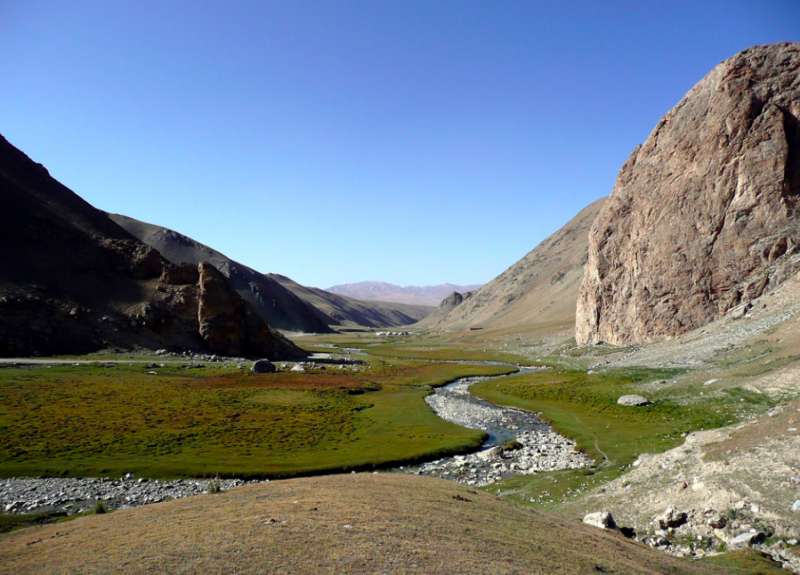Mr. Temir Burzhubaev is an economist and an expert in public finance management, strategic planning, monitoring and evaluation. He has more than eight years of experience in the state service, mainly at the Ministry of Economy.
He is also a member of the Public Council under the Ministry of Finance of Kyrgyzstan. He currently serves as the National Finance Expert and Team Leader of the UNDP BIOFIN-Kyrgyzstan Initiative project.
During the weeks of 8 September to 10 November 2017, the Partnership for Action on Green Economy (PAGE) delivered an e-learning course on green fiscal reform to meet the learning needs and build capacities of national stakeholders.
The interactive and practice-oriented course provided participants from government, business, civil society and academia with an introduction to various approaches and policy instruments for reforming government spending and revenue generation with the goal of supporting the transition to a green economy.
Mr. Burzhubaev participated in the course and shares with us his experience:
“During my participation, I was leading two reviews for the state of the environment and biodiversity to provide an understanding of the level of financing needed in Kyrgyzstan. Therefore, I used the knowledge I gained during the course to formulate recommendations of state policy.”
Mr. Burzhubaev also shares that his final task of the green fiscal reform e-course has caused a real impact in his country.
“I developed the plan for measures to reform the fuel subsidy in Kyrgyzstan with the support of other participants and mentors of the GFR e-course. Now, it’s considered as the basis for real intervention and proposed to be included in the next phase of the country development programme in Kyrgyzstan.”
He strongly encourages others to take the e-course.
“I am very lucky to have taken this course because this year the BIOFIN project team will develop a financial plan for biodiversity conservation, which will offer a number of financial mechanisms, including green fiscal instruments. We are already using the supporting materials to draft recommendations.”

For Mr. Burzhubaev, the e-course “offers a lot of materials that contain both theoretical material and cross-country studies, as well as stories about the experiences of countries that have implemented specific solutions that stimulate green sustainable behaviour of the population and business.”
“Thanks to its well-developed structure and contents, the GFR e-course helped me to see government initiatives aimed at solving social and economic problems in a different way,” and adds:
“This course is extremely useful for specialists with various profiles who are involved in the preparation of government decisions and country strategies. The course will bring undeniable benefits to active representatives of civil society, especially members of public councils under state bodies, who should reasonably oppose or assist state bodies in making decisions that are important for sustainable development.”
Mr. Burzhubaev has co-authored several publications, among them:
Burzhubaev T., Umurzakov K. “Kyrgyzstan: Aid for Trade Needs Assessments”, UNDP, 2010.
Aibasheva J., Burzhubaev T., Mateev U. “National Services Policy Review: Kyrgyzstan”, UNCTAD, 2013).
Burzhubaev T., Koychumanov T., Suyunbaev M. “Issues of the Economic Growth of the Kyrgyz Republic in transition” Orientir journal, #4, 2003.
About PAGE
The Partnership for Action on Green Economy (PAGE) brings together the expertise of five UN agencies — UN Environment, International Labour Organization, UN Development Programme, UN Industrial Development Organization, and UN Institute for Training and Research. It supports nations and regions in reframing economic policies and practices around sustainability to foster economic growth, create income and jobs, reduce poverty and inequality, and strengthen the ecological foundations of their economies.

